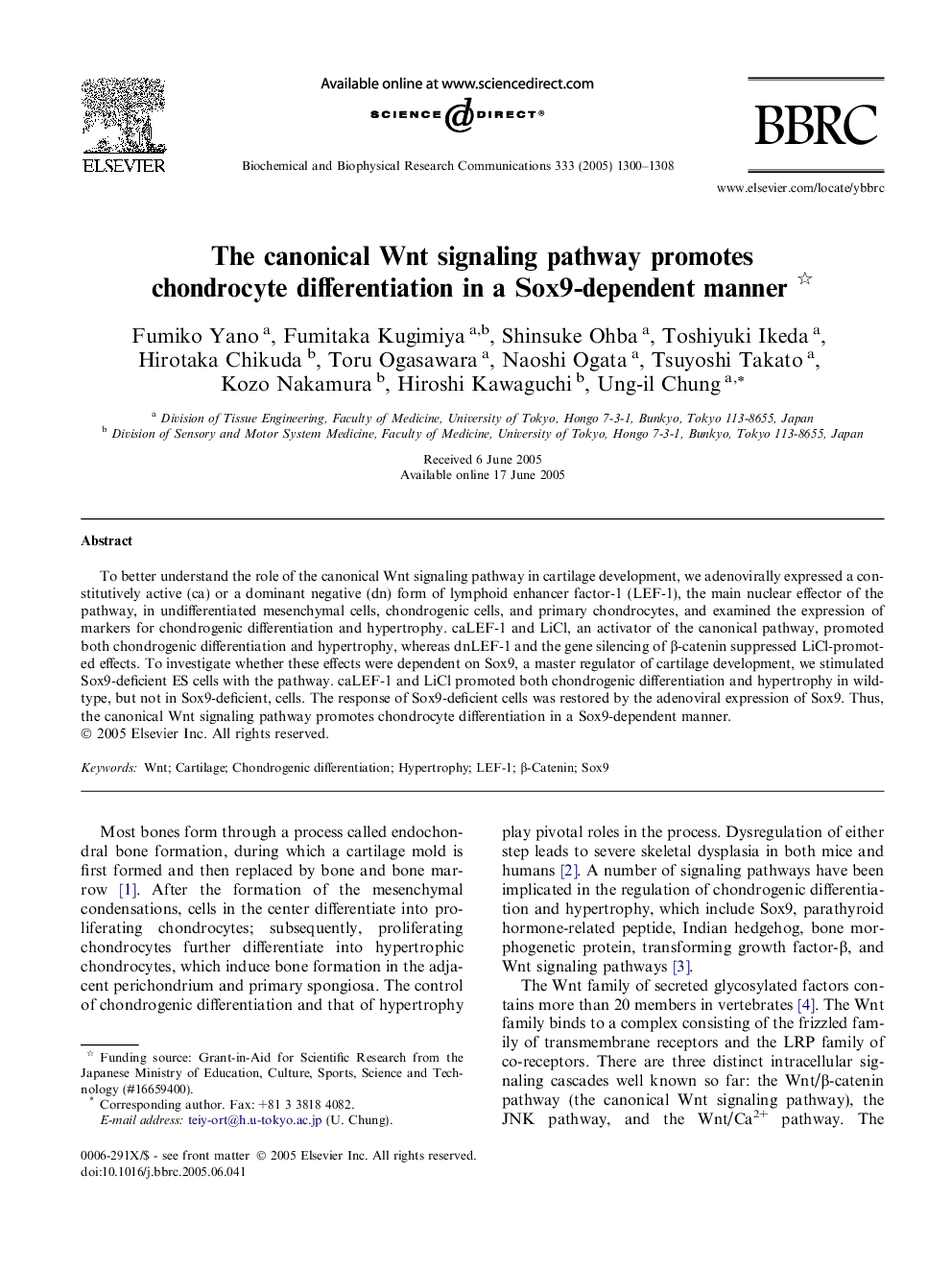| Article ID | Journal | Published Year | Pages | File Type |
|---|---|---|---|---|
| 10768596 | Biochemical and Biophysical Research Communications | 2005 | 9 Pages |
Abstract
To better understand the role of the canonical Wnt signaling pathway in cartilage development, we adenovirally expressed a constitutively active (ca) or a dominant negative (dn) form of lymphoid enhancer factor-1 (LEF-1), the main nuclear effector of the pathway, in undifferentiated mesenchymal cells, chondrogenic cells, and primary chondrocytes, and examined the expression of markers for chondrogenic differentiation and hypertrophy. caLEF-1 and LiCl, an activator of the canonical pathway, promoted both chondrogenic differentiation and hypertrophy, whereas dnLEF-1 and the gene silencing of β-catenin suppressed LiCl-promoted effects. To investigate whether these effects were dependent on Sox9, a master regulator of cartilage development, we stimulated Sox9-deficient ES cells with the pathway. caLEF-1 and LiCl promoted both chondrogenic differentiation and hypertrophy in wild-type, but not in Sox9-deficient, cells. The response of Sox9-deficient cells was restored by the adenoviral expression of Sox9. Thus, the canonical Wnt signaling pathway promotes chondrocyte differentiation in a Sox9-dependent manner.
Related Topics
Life Sciences
Biochemistry, Genetics and Molecular Biology
Biochemistry
Authors
Fumiko Yano, Fumitaka Kugimiya, Shinsuke Ohba, Toshiyuki Ikeda, Hirotaka Chikuda, Toru Ogasawara, Naoshi Ogata, Tsuyoshi Takato, Kozo Nakamura, Hiroshi Kawaguchi, Ung-il Chung,
